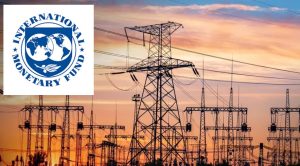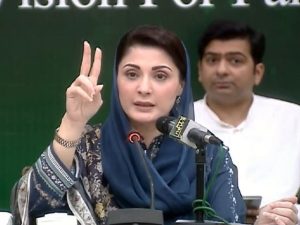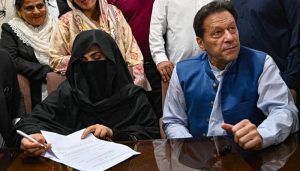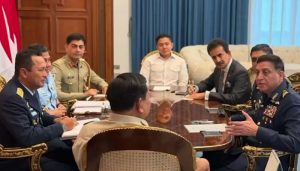LAHORE – Dr Arif-ur-Rehman Alvi, Pakistan Tehreek-e-Insaf’s candidate, was elected Tuesday as the next President of Pakistan, after getting majority votes from an electoral college comprising members of the Senate, national and provincial assemblies.
Born in 1949 and a dentist by profession, Arif Alvi is among the founding members of PTI and a close affiliate of chairman Imran Khan, who took over as Prime Minister of Pakistan last month.

How President is elected?
As per article 41(2) of the Constitution of Pakistan, the President must a Muslim and has at least forty-five years of age.
The President-nominee does not need to be a member of Senate, National Assembly or Provincial Assemblies, however, he or she should be qualified to be elected as member of the National Assembly as outlined in article 62 of the Constitution of Pakistan.
The President first needs to be nominated by a political party as a presidential candidate, after which, there will be a presidential election in which Senate, National Assembly, and Provincial Assemblies will vote for their favorite candidate. Usually, party who holds majority in Parliament’s both houses and provinces has their candidate elected as the President.
Powers/Duties of President of Pakistan
The President of Pakistan holds following powers:
Powers regarding Military
Appointment
- On the advice of Prime Minister, President appoints Chairman Joint Chiefs of Staff committee, Chief of Army Staff, Chief of Naval Staff and Chief of Air Staff. Even President of Pakistan determines their allowances and salaries.
War and Peace settlement
- President possesses power to declare war and make peace settlement. However, such power can only be used after making consultation with Prime Minister.
Sending Pakistan Army to other states and UN
- President has power to send Pakistan army for help to other states and United Nations organization.
Judicial Powers
President of Pakistan possesses following judicial powers:
- Appointment of Chief Justice of Pakistan
- Appointment of Chief Justices of High Courts and Judges of Supreme Court and High Court
- Appointment of acting Chief Justice of Pakistan and chief Justice of High Courts
- Appointment of acting and ad hoc judges of Supreme Court
- Appointment of additional judges of High Courts
In the past, after three successful military coups in the South Asian country, Pakistan has experienced a kind of political conflict between its President and Prime Minister. However, some of recent constitution amendments have made Prime Minister more powerful than President. These amendments have aimed to finish political conflict between these two constitutional heads.
Legislative Powers After 18th Amendment
After 18th Amendment in the Constitution of Pakistan, President possesses following legislative powers:
- It is widely believed that after 18th amendment, the Constitution does not empower the President to dissolve the National Assembly but the fact is that head of the state still has the right. However, President can only dissolve the National Assembly if so advised by the Prime Minister; and the National Assembly.
- As head of the state, President conducts and oversees the general elections when the national assembly stands dissolved after completing its five-year term.
- At the outset of new Parliamentary year, President summons and addresses the joint session where he reminds the lawmakers of the state’s founding principles.
- President has the right to promulgate any ordinance or an amended bill. If president reject the bill, it comes back to the Parliament and then needs 2/3 majority to be passed again. If the bill gets 2/3 majority then the President is bound to sign that bill and if the bill fails to get 2/3 majority, the life of that bill gets over.
- President is also the Chancellor of all federal universities in the country.
- It is the President who appoints Auditor General, Attorney General, Governors, members of National Finance Commission, members and chairman of Council of Islamic Ideology, Council of Common Interest, and National Economic Council.
- President of Pakistan has power to appoint ambassadors in foreign states and representative in United Nations Organization, and to settle foreign affairs.
- President also holds the power to grant pardon, or reduce the sentence of a convicted prisoner.
How can President of Pakistan be removed?
Under the following ground or conditions the president may be removed from his office.
- Physical incapacity
- Mental incapacity
- Guilty of violation of the constitution
- On account of gross misconduct
Here is a list of all the presidents of the country, with their respective tenures. It includes those who served as acting presidents – Wasim Sajjad (twice) and Mohammedmian Soomro.
- Maj General Iskandar Mirza (23-03-1956 to 27-10-1958)
- General Mohammed Ayub Khan (27-10-1958 to 25-03-1969)
- General Mohammed Yahya Khan (25-03-1969 to 20-12-1971)
- Zulfiqar Ali Bhutto (20-12-1971 to 14-08-1973)
- Fazal Elahi Chaudhry (14-08-1973 to 16-09-1978)
- General Mohammed Zia-ul-Haq (16-09-1978 to 17-08-1988)
- Ghulam Ishaq Khan (17-08-1988 to 08-07-1993)
- Wasim Sajjad (Acting) (08-07-1993 to 14-11-1993)
- Sardar Farooq Ahmed Leghari (14-11-1993 to 02-12-1997)
- Wasim Sajjad (Acting) (02-12-1997 to 01-01-1998)
- Justice (r) Mohammed Rafiq Tarar (01-01-1998 to 20-06-2001)
- General (r) Pervez Musharraf (20-06-2001 to 15-10-2007)
- General (r) Pervez Musharraf (29-11-2007 to 18-08-2008)
- Mohammedmian Soomro (Acting) (18-08-2008 to 09-09-2008)
- Asif Ali Zardari (09-09-2008 to 09-09-2013)
- Mamnoon Hussain (09-09-2013 to 08-09-2018)
Dr Arif Alvi will assume the office on September 9, 2018.













